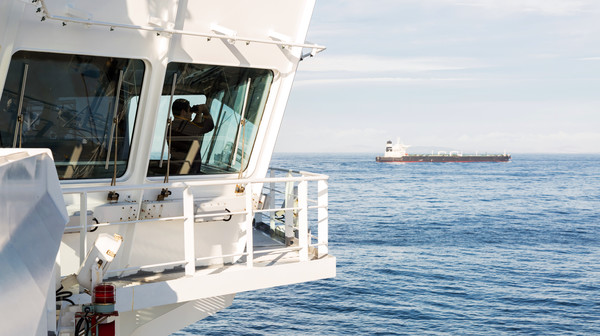The 109th session of the Maritime Safety Committee took place at the IMO in London from 2-6 December 2024 and was chaired by Maite Medina from the USA. IUMI was represented by Secretary General Lars Lange. Key issues addressed during the meeting included the following:
Development of a goal-based instrument for Maritime Autonomous Surface Ships (MASS)
The Maritime Safety Committee was informed that during the third session of the Intersessional Working Group on MASS which was held in September 2024, it finalised chapters 17 (Safety of Navigation) and 20 (Fire Protection, Fire Detection and Fire Extinction) of the draft MASS Code and had initial discussions on chapters 23 (Search and Rescue) and 28 (Emergency Response).
On chapter 23 (Search and Rescue), the Committee noted that assisting SAR operations at sea remained an important task which is often allocated to merchant ships that are operating in areas where the intervention of rescue services might not be immediately available. MASS should be able to play the same role when required. To this end, the provisions on SAR were considered critical.
A Working Group was established and it finalised chapters 7 (Risk Assessment), 12 (Connectivity) and 18 (Remote Operation) of the draft MASS Code, and considered chapter 23 (Search and Rescue). Interested parties were invited to submit proposals to the next MSC session on the framework for Concept of Operation (ConOps). These could then be considered for inclusion in the draft Code.
A revised road map for the development of a goal-based code for MASS was agreed and the Intersessional Working Group on Maritime Autonomous Surface Ships was re-established. Due to time constraints, the Group could not consider all chapters.
The finalisation and adoption of the non-mandatory MASS Code is now planned for MSC 111 (May 2026), followed by an experience-building phase. The road map looks for adoption of the mandatory Code by 1 July 2030 at the latest for entry into force on 1 Jan 2032.
Safety regulatory framework to support the reduction of GHG emissions from ships
The Committee noted the interim oral report of the progress provided by the Coordinator of the Correspondence Group (CG) informing that approximately 51 recommendations were being developed to address barriers and gaps in IMO instruments that may need to be amended. In addition to these recommendations, the Committee also noted that the CG was identifying which IMO bodies may be best suited to undertake each task.
A Working Group was established to further develop and update the list of alternative fuels and new technologies to support the reduction of GHG emissions from ships. The Group decided to include a new category for "swappable traction lithium-ion battery containers" to the list of new technologies and it agreed draft SOLAS amendments in relation to the application of the IGF Code. The Group further invited IMO member States and observers to submit proposals regarding amendments to the SOLAS definition of "low-flashpoint fuel" which should include consequential amendments to SOLAS chapter II-1 and the IGF Code.
The work of the Correspondence Group continues and IUMI is represented by Ocean Hull Committee Chair Ilias Tsakiris from Hellenic Hull.
Maritime Cyber Risk Management and next steps to enhance maritime cybersecurity
The maritime industry has an urgent need for enhanced and holistic cybersecurity measures to protect commercial ships and port facility operations from increased cyber threats and risks. Considering the importance of cybersecurity issues, the development of unified cybersecurity standards for ships and port facilities should be discussed in depth in a working group at the next session of the Committee. This would be subject to submissions being put forward under this agenda item.
A working group during the next MSC session should include a broad spectrum of cyber security experts such as the International Organization for Standardization (ISO) and the International Electrotechnical Commission (IEC) and should develop a cybersecurity framework and road map for implementation. The IMO’s Facilitation Committee (FAL 48) agreed a new output on "Development of a comprehensive strategy on maritime digitalization", with a target completion year of 2027, and maritime cybersecurity should be considered as part of this work. The Committee agreed to extend the target completion of the output to 2026.
Piracy and armed robbery against ships
72 incidents of piracy and armed robbery against ships had been reported to the IMO from January to June 2024, demonstrating a decrease of approximately 20% at the global level compared to the same period in 2023. The areas most affected during the period in 2024 were the Straits of Malacca and Singapore (37), the Indian Ocean (13) and West Africa (10). The number of incidents in the Gulf of Guinea (West Africa) had decreased in the first half of 2024 by four compared with the same period in 2023, showing a decrease of approximately 29%.
New Outputs
The Maritime Safety Committee still works under a Moratorium that limits so called “New Outputs” - new items added to the Committee’s working agenda.
MSC 107 had introduced the Moratorium on submissions of proposals for new outputs and MSC 108 agreed to extend it until MSC 109 in order to enable further consideration of the workload of the Committee and Sub-Committees. In this context, the Committee also agreed that only justified urgent proposals for new outputs should be considered at MSC 109, subject to prior assessment of all new proposals. However, nine proposals for new outputs were submitted to MSC, but MSC accepted only two of them confirming the urgency of those matters.
